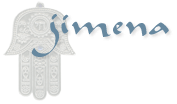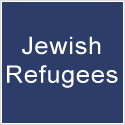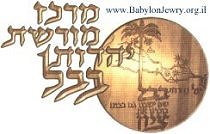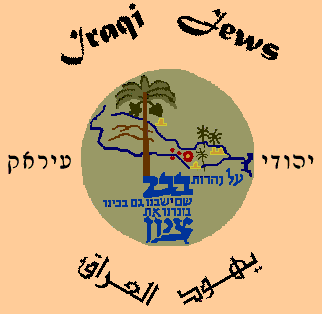Rachel Alwaya
The sun falls on Rachel’s gaunt face. The Alzheimer’s and time have worn her down. Now her skin is pulled by its own weight over her bones. Her apartment is full of people; her daughter Semha, her son Rami, her niece Amira, her grandchildren Asaf, Li-Hi, Ayelet and Duni and of course her Phillipino attendant Luz.
“Mama!” Rami yells. She looks wearily toward him, her once green eyes have turned blue, the right more closed than the left. Rami speaks in Arabic. Rachel’s grandchildren don’t understand Arabic – that was a different time.
While the guests sit about the old apartment, the same that Rachel moved into 34 years ago with her husband Yusef, her mind wanders away; maybe to Iraq , to Iran to the transit camps in Israel . She was once a part of a thriving Jewish community in Iraq and was forced out; living both in Israel and Iran . Like 150,000 other Iraqi Jews she had her property confiscated, citizenship revoked and status destroyed.
“She met Yusef when he used to drive her home from school in Baghdad ,” says a cousin and proprietor of an Iraqi restaurant in Ramat Gan , a heavily Iraqi suburb of Tel Aviv.
Beyond being romanced by Yusef, Rachel was fiercely independent and never thought a thing about being a woman, a Jewish woman in Baghdad . That didn’t stop her from going to medical school in Baghdad . If it were not for her aversion to blood she could have been a doctor. If not a doctor why not a lawyer? So Rachel took law courses at the University to obtain a degree in Law. She was one of seven Jewish students allowed to attend Universities in Iraq at the time.
Her headstrong nature ran in her family. Her uncle Sasoon Hiskel was the only Jewish Finance Minister of Iraq . Her father Abdullah was the head of Bedouin Affairs. She also benefited from a close relation with Muslim Iraqis, having gone to Arab schools while most Baghdad Jews were attending French or British schools.
But all that didn’t matter. When anti-Semitism exploded into violence she was expelled from the university and forced out of the only home she knew.
In 1951 Rachel and her family left Iraq . She, Yusef and the newborn Semha boarded a plane for Israel , twenty dinars among them. Their home gone, she bore her education with her; a valuable resource. From 1951-1954 Rachel raised Semha in the squalor of an Israeli Transit Camp. In 54 the small family left for Iran hoping for a better life. In Iran it was rumored that there was opportunity and while it was painful to leave the Alwaya clan in Israel they had no choice.
There Rachel put her education to work and quickly became the principal of Etefaq “The Alliance”. Etefaq was the hub of Tehran ‘s Jewish community. Across from the university the school had 360 students, a synagogue a pool and the first female principal in Iran – Rachel Alwaya.
“She ran the school with an Iron fist,” says her daughter Semha who also attended the school. “But everybody loved her because she was fair.”
She remained the principal until the family left in 1965. Yusef had left two years before and Rachel longed to bring her now three children back to Israel where her husband and the rest of the Alwaya lived. During her tenure at Etefaq she instituted such progressive programs as having dances with both boys and girls, this in Iran .
In Israel she taught Arabic and held close ties to the Iraqi community. A community that, like all Mizrahi communities in Israel , is increasingly assimilated into the same uniquely Israeli amalgam.
Rachel is a remnant of a different time. And as she slips further away, deeper into her memories, another voice of the collective past of Iraqi Jews is lost.




